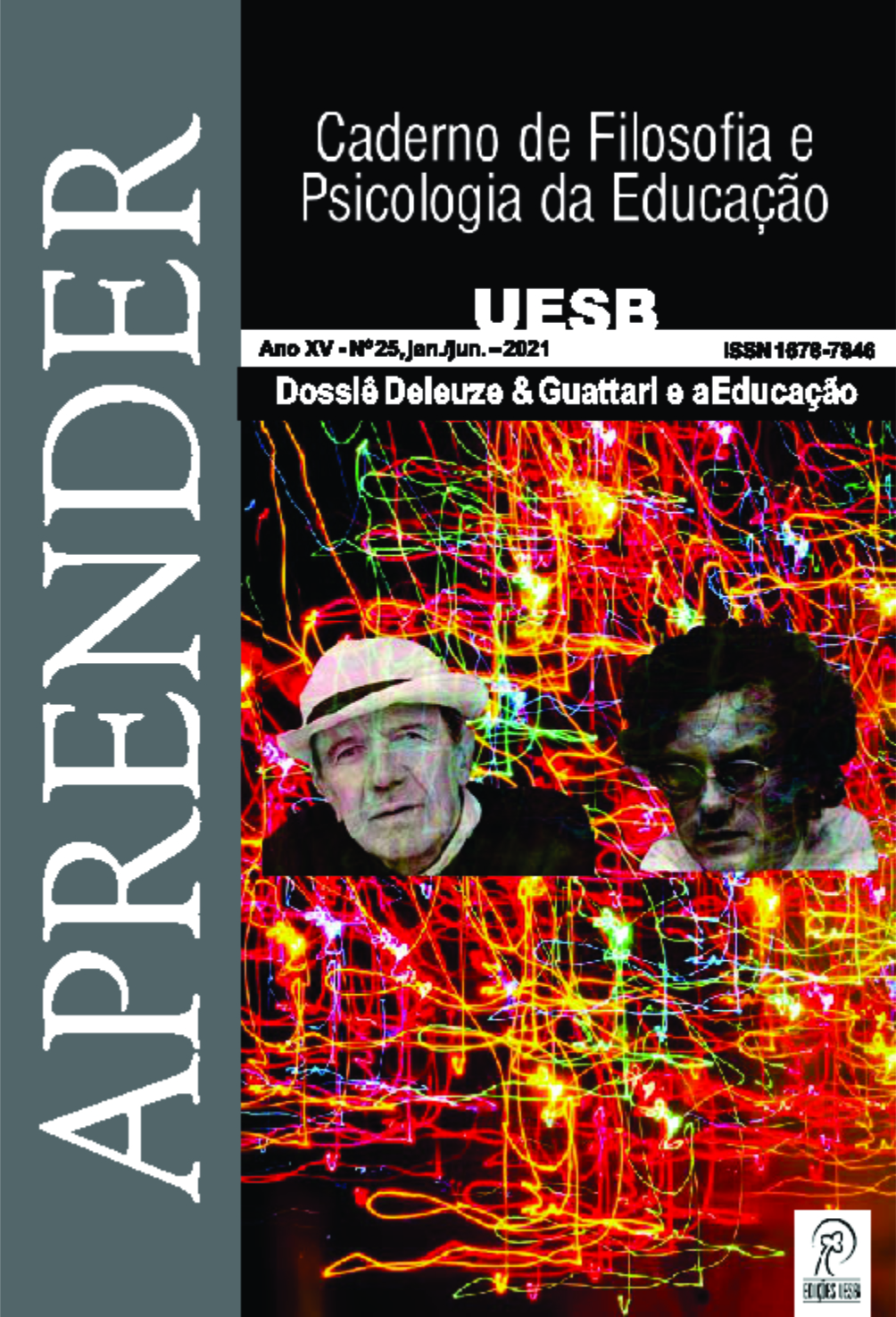A CONTRAST-IMAGE: THE IRONY BETWEEN SOUND AND VISUAL DISJUNCTIONS
DOI:
https://doi.org/10.22481/aprender.i25.8945Keywords:
contrast-image, education, cinema, ironyAbstract
The relationships between images and (re)cognition are highlighted in the criticisms about the primacy of representation, one of the pillars of the contributions of Gilles Deleuze's philosophy to the studies in the field of education. Based on the proposition of the contrast-image concept, which articulates the visual and the sound aspects in the presentation of the cinematographic image, this article presents contributions to shift the most usual senses of perception of the world and of the learning derived from the subjects' relationship about what is real, especially considering the analysis of one film by Stanley Kubrick. We have pointed out constituting characteristics in the contrast-image that question a privileged human nature when subjects of education are named. The use of irony in its connection with humor is also highlighted, intensifying this contrast-image.
Downloads
References
COPPOLA, F. F. Apocalipse Now [filme] Direção: Francis Ford Coppola. EUA: American Zoetrope Studios, 1979. DVD/color/153 min.
COPPOLA, E. Francis Ford Coppola: o apocalipse de um cineasta. EUA: Zaloom Mayfield Productions e American Zoetrope, 1991. DEC/color/96min.
DELEUZE, G.; GUATTARI, F. O que é filosofia. Trad. Bento Prado Jr. e Alberto Alonso Muñoz. Rio de Janeiro: Editora 34, 1997.
DELEUZE, G. O Método de dramatização. Trad. Luis B. L Orlandi. In: A Ilha Deserta. São Paulo: Iluminuras, 2006, p. 129-154.
DELEUZE, G. Cine I: Bergson y las imágenes. Trad. Sebastián Puentes y Pablo Ires. Buenos Aires: Cactus, 2009.
DELEUZE, G. Espinosa e o problema da expressão. Trad. GT Deleuze — 12, Coord. Luiz B. L. Orlandi. São Paulo: Editora 34, 2017.
DELEUZE, G. A imagem-tempo - Cinema 2. Trad. Stella Senra. Rio de Janeiro: Editora 34, 2018.
HERZOG, W. O Enigma de Kaspar Hauser (1973). Question of Logic Scene - Kaspar Hauser. Disponível em: http://www.youtube.com/watch?v=oAnOi0fnxuE. Acesso em: 26/06/2021.
KASTRUP, V. A invenção de si e do mundo. Belo Horizonte: MG: Autêntica, 2007.
KOLKER. R. Stanley Kubrick, The Irony of Feeling. National Gallery of Art. 1 vídeo (45:12min). Disponível em: https://www.youtube.com/watch?v=2QKi9QBHfHc. Acesso em 27 jun. 2021.
KUBRICK, S. Laranja mecânica. [filme]. Direção: Stanley Kubrick. EUA: Warner Bros, 1972. DVD/color/136 min.
KUBRICK, S. Nascido para matar. [filme]. Direção: Stanley Kubrick. EUA: Warner Bros, 1987. DVD/color/116 min.
LINS, D. Estética como acontecimento. São Paulo, Lume Editora, 2021.
NOVAES, M. Entrevista com Luiz Orlandi. 2012.
OSTROWER, F. Acasos e criação artística. Campinas: Editora da Unicamp, 2013.
Downloads
Published
How to Cite
Issue
Section
License
Copyright (c) 2021 APRENDER - Caderno de Filosofia e Psicologia da Educação

This work is licensed under a Creative Commons Attribution-ShareAlike 4.0 International License.






